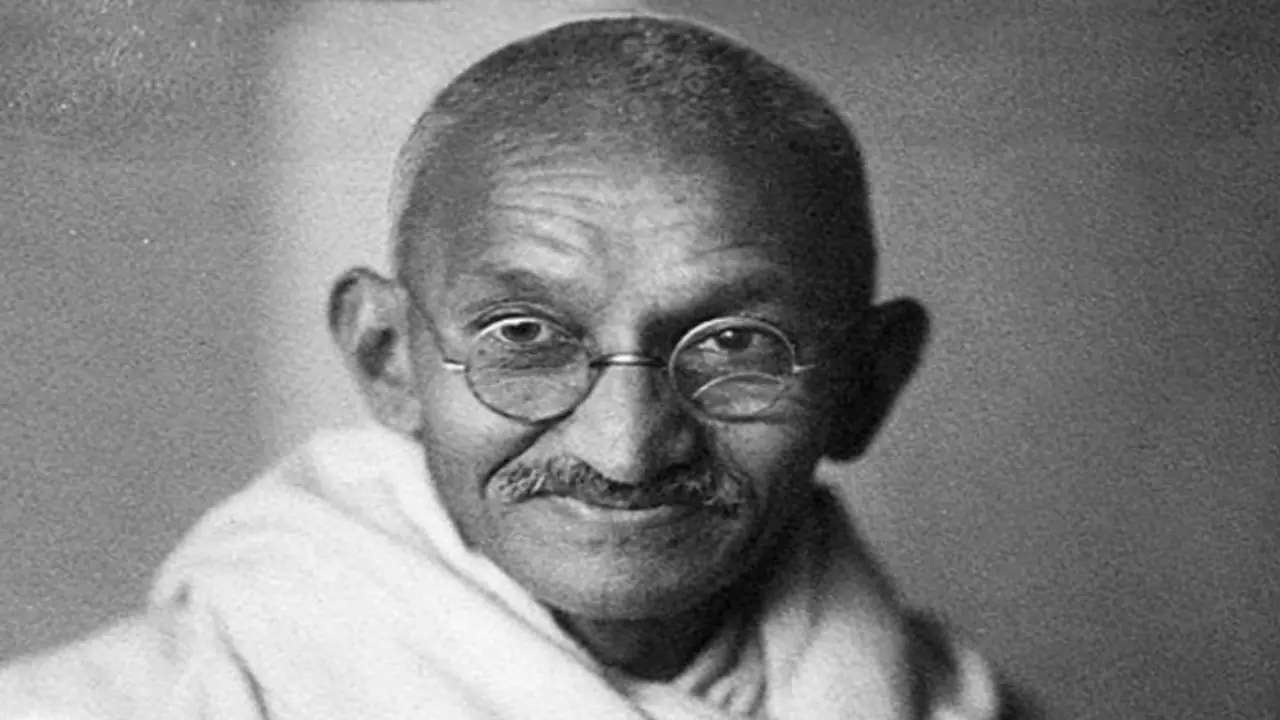Mahatma Gandhi, a pivotal figure in India's fight for independence, was also a prolific writer. His books reflect his philosophy, social ideas, and political strategies, offering timeless lessons in ethics, social justice, and nonviolent resistance.
Mahatma Gandhi, a pivotal figure in India's struggle for independence, was also a prolific writer whose works continue to inspire and influence countless readers. His writings reflect his philosophy, social ideas, and political strategies. Here are five of his remarkable books that everyone must read.
Hind Swaraj (1909)
Hind Swaraj, written by Mahatma Gandhi in 1909, is a foundational text that outlines his vision for Indian self-rule. Composed during his time in South Africa, the book critiques modern civilization, which Gandhi views as morally and spiritually bankrupt. He advocates for a return to traditional Indian values and emphasizes the importance of self-governance rooted in moral and ethical principles. Gandhi argues that true independence cannot be achieved through political means alone; it requires a deep commitment to truth (satyagraha) and nonviolence (ahimsa). This work serves as a manifesto for Gandhi's philosophy and a guide for the Indian independence movement.
He posits that real swaraj is about individual and collective self-control, moral responsibility, and social harmony. The book critiques Western materialism and industrialization, suggesting that they lead to exploitation and dehumanization. By advocating for a life of simplicity, self-sufficiency, and community engagement, Gandhi sets forth a vision that challenges the prevailing notions of progress and development. This text remains a significant philosophical cornerstone, shaping not only India's freedom struggle but also global movements for justice and equality.
Satyagraha in South Africa (1928)
‘Satyagraha in South Africa’, published in 1928, is a critical account of Mahatma Gandhi's early years in the struggle against racial discrimination while living in South Africa from 1893 to 1914. In this work, Gandhi details his experiences as he mobilized the Indian community to resist unjust laws and social injustices through nonviolent means. He introduces the concept of "satyagraha," a term that translates to "truth-force" or "soul-force," which emphasizes the power of nonviolent resistance in confronting oppression.
The book not only serves as a historical account but also as a philosophical treatise on the effectiveness of nonviolence as a means of social and political change. Gandhi discusses key events, such as the opposition to the pass laws and the struggle for civil rights, showcasing how collective action rooted in truth and moral integrity can achieve significant victories against injustice. ‘Satyagraha in South Africa’ is significant for its role in shaping Gandhi’s ideas and strategies, ultimately influencing the broader Indian independence movement.
The Law and the Lawyers
This work serves as a critique of the legal profession and the judicial system. In "The Law and the Lawyers," Gandhi argues that the legal system is often inaccessible and burdensome for the common man. He calls for a more equitable system that prioritizes justice over legal technicalities. This book reflects Gandhi’s belief in the importance of ethical conduct in all aspects of life, including law.
The Story of My Experiments with Truth
‘The Story of My Experiments with Truth’, published in 1929, is Mahatma Gandhi's autobiography that offers an intimate glimpse into his life, philosophy, and the principles that guided him. Written in a candid and reflective style, the book chronicles Gandhi's journey from his childhood in Porbandar to his transformative experiences in South Africa and beyond. It highlights his commitment to truth (satya) and nonviolence (ahimsa) as the cornerstones of his philosophy. Through personal anecdotes, Gandhi discusses his moral struggles, ethical dilemmas, and the lessons learned from both successes and failures, providing readers with insight into the man behind the political icon.
This autobiographical work is not merely a recounting of events; it serves as a profound exploration of Gandhi's inner life and spiritual development. He delves into his experiments with dietary choices, spiritual practices, and social issues, illustrating how these experiences shaped his beliefs and leadership style. By sharing his vulnerabilities and reflections, Gandhi invites readers to engage with his ideals and encourages them to undertake their own experiments with truth. ‘The Story of My Experiments with Truth’ stands as a timeless testament to the power of self-exploration and moral conviction, inspiring individuals to pursue authenticity and justice in their own lives.
The Indian State Problem (1942)
Written during the tumultuous years of World War II, "The Indian State Problem" explores the complexities of India's political landscape and the question of independence. Gandhi articulates his vision for a unified India and addresses the tensions between different communities and ideologies. He emphasizes the necessity of communal harmony and mutual respect as fundamental to India's future.
Gandhi’s writings are not just historical documents; they are enduring lessons in ethics, social justice, and nonviolent resistance. Each of these works contributes to our understanding of his philosophy and the socio-political landscape of India during his lifetime.
